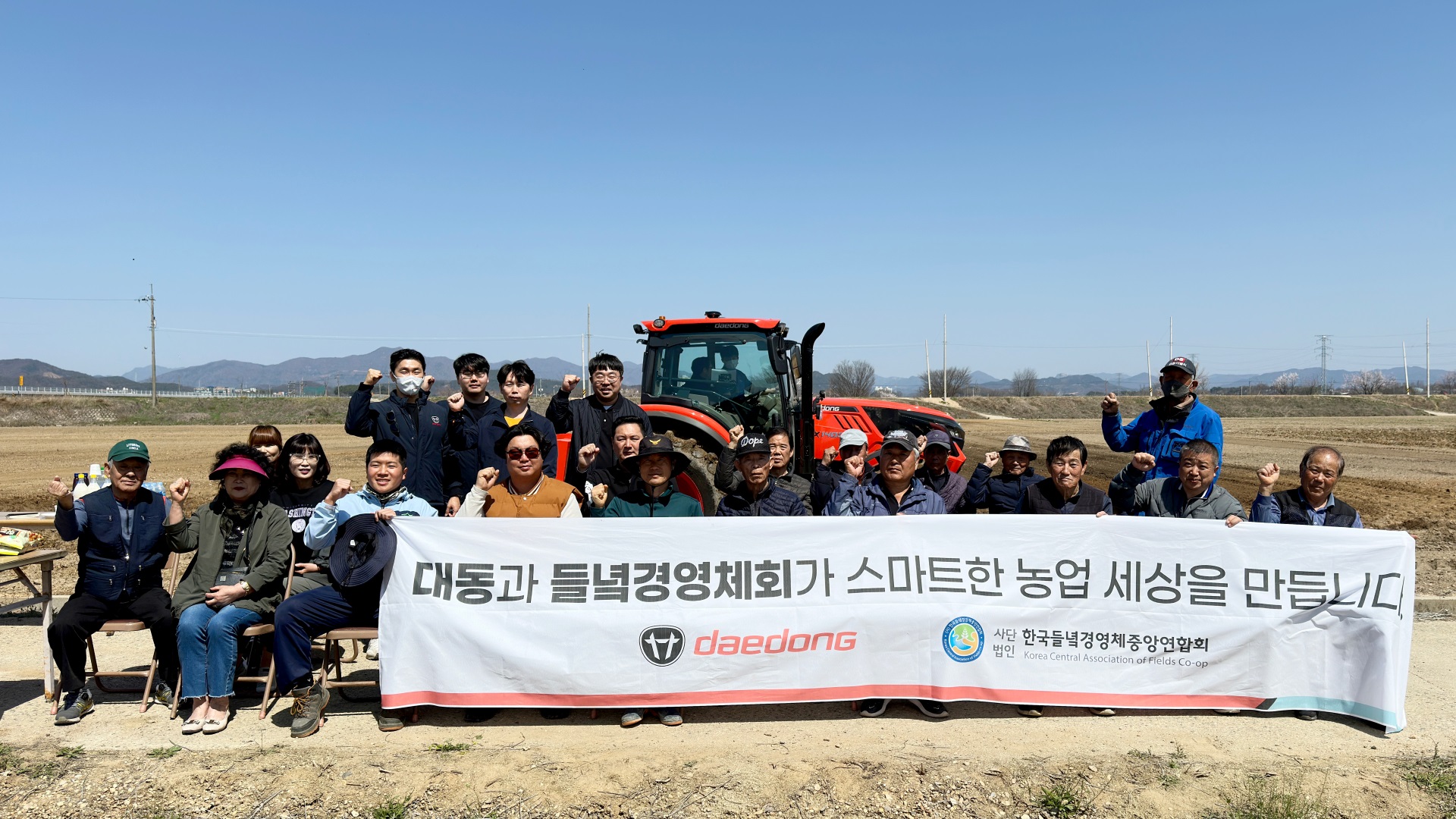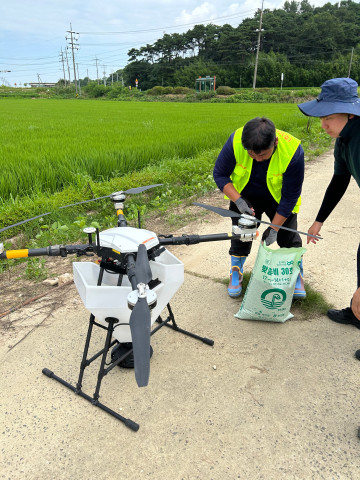Daedong and the Korea Central Association of Fields Co-op looking to offer additional demonstrations showcasing precision agriculture
“Advancing and popularizing precision agriculture to infusing agriculture with AI technology”
Daedong and the Korea Central Association of Fields Co-op looking to offer additional demonstrations showcasing precision agriculture
- Mapping almost 595,000m2 of rice paddies and soybean fields to analyze soil and crop growth, and also recommend customized prescriptions for fertilizers and chemicals
- Both partners will forecast the yield from farmland harvested using precision agriculture technology, and compare data with actual production to help advance precision agriculture further
- Daedong plans to offer services developed to manage farmland and cultivate arable land using precision agriculture using the Connect app
Daedong (CEO Won Yu-Hyun), a leading company in future agriculture technology, announced on June 24 that it plans to offer additional demonstrations of its data-based open-field precision agriculture, and promote the distribution of autonomous agricultural machinery in collaboration with operation with the Korea Central Association of Fields Co-op (KCAF)[i].
Earlier in the year (January), Daedong signed a strategic MOU to “cooperate on distributing and supplying precision agricultural services and smart agricultural machinery” with KCAF. The two partners agreed to promote the advancement and reporting of precision agriculture solutions deployed across various rice paddies and soybean farms associated with KCAF in Gimje (Jeollanam-do), Icheon (Gyeonggi-do), Jangseong (Jeollanam-do), and Sangju (Gyeongsangbuk-do), in line with conventional farming protocols i.e. the sowing, growing, and harvesting of crops.

For the overall initiative, Daedong plans on mapping 160 plots of farmland totaling 595,000m2 (approximately 180,000 pyeong) before sowing, and analyzing soil quality with soil samplings to deliver a variable rate fertilization [ii] solution. During the growing season, the growth and development of crops will be photographed and analyzed using a drone to prescribe the optimal fertilization (fertilizer spraying) and pest control (pesticide spraying) schedules. Then, during the harvest season, Daedong will forecast the optimal point of harvest and expected yield based on growth to maximize the yield of top-quality crops. Daedong’s autonomous combine harvester, which features a “yield monitoring function” that can check the yield for each mapped farmland, will help harvest crops to verify the effectiveness of precision farming prescriptions and advances in the applied technologies.
To date, Daedong has managed to create soil maps using the data collected and analyzed from each plot of soil from four participating farms that have accepted variable rate fertilization prescriptions from Daedong. The company also hosted demonstrations of autonomous tractors and training sessions on how to use them, and currently, farmers are cultivating and sowing their fields using Daedong's autonomous tractors. From June to August, Daedong is hoping to use drones to secure imagery that tracks crop growth in order to provide customized fertilization and pest control prescriptions based on crop growth, then from September to October, it will analyze data to forecast the optimal point of harvest.
Daedong expects that this demonstration will stoke farmers’ interest in and trust in precision agriculture by increasing yield and reducing production costs, including the cost of agricultural materials and labor. The company demonstrated its precision agriculture solutions at rice paddies (750,000m2 in total) over the past three years (2021 to 2023), reducing fertilizer usage by 8.4% per 10a and increasing yields by 19.2% to improve the overall profitability of farms.

In addition to Daedong, the Korean government is promoting the “precision farming of soybeans harvested in rice paddies,” which has enjoyed some explosive growth recently as a substitute for rice, in order to expand Korea’s foundation for digital agriculture. More specifically, rice paddies planted with soybeans more than quadrupled (4.1 times) from 4,422ha (13.4 million pyeong) in 2016 to 18,314ha (55.4 million pyeong) in 2023.
Going forward, Daedong is also expected to offer farmland management services using precision farming technology via the company’s Connect app. These services will keep farmers up-to-date with the progress they have made with precision farming technology, make sure farmers keep track of how much their crops have grown over each time period, and help compile farming logs to grow drops based on their own data. By 2026, Daedong also plans to add agricultural work agency services and precision agriculture solution functions to its portfolio.
Lee Gwang-wook, Head of Daedong's Platform Business Division, said, “I think that our demonstrations, most of which get underway at some of the larger farms associated with KCAF, present a good opportunity for us to collect feedback from our clients who are the ones that actually use precision agriculture, and it’s a great chance to advance and popularize our technology.” Lee added, “We will strategically promote the development of future agricultural technologies in line with the global agricultural environment and transform agriculture into an AI-driven industry going forward.”
Meanwhile, last month, Daedong launched the “Smart Agriculture Cooperation Council” with the Rural Development Administration (RDA) to speed up the distribution of smart agriculture technologies that combine cutting-edge technologies such as big data and artificial intelligence and to foster real collaboration in the area of smart agriculture. The Council has 18 collaborative projects spread across four subdivisions focusing on data, precision agriculture, green bio, and distribution. Daedong is hoping to develop smart agricultural technologies as well as services, and utilize the Council to facilitate the distribution of its technologies to farms associated with KCAF.
________________________________________
[i] It was established in 2009 as part of the policy to create and foster agricultural management organizations, and is an association of agricultural management organizations with more than 25 farmers (members) who cultivate at least 50ha of farmland. There are 600 member field co-ops nationwide, and they jointly manage all or part of the crop cultivation processes used at a total of 107,000ha (approx. 323 million pyeong) of arable farmland in Korea.
[ii] What is variable rate fertilization? It is a technology that calculates the amount of fertilizer to be sprayed upon analyzing the soil environment, and sprays the fertilizer at a variable rate depending on the specific location or area. The key to this technology is to supply the right amount of nutrients to the right location for the crops, as the growth of crops may vary depending on various factors even within the same plot of land.
